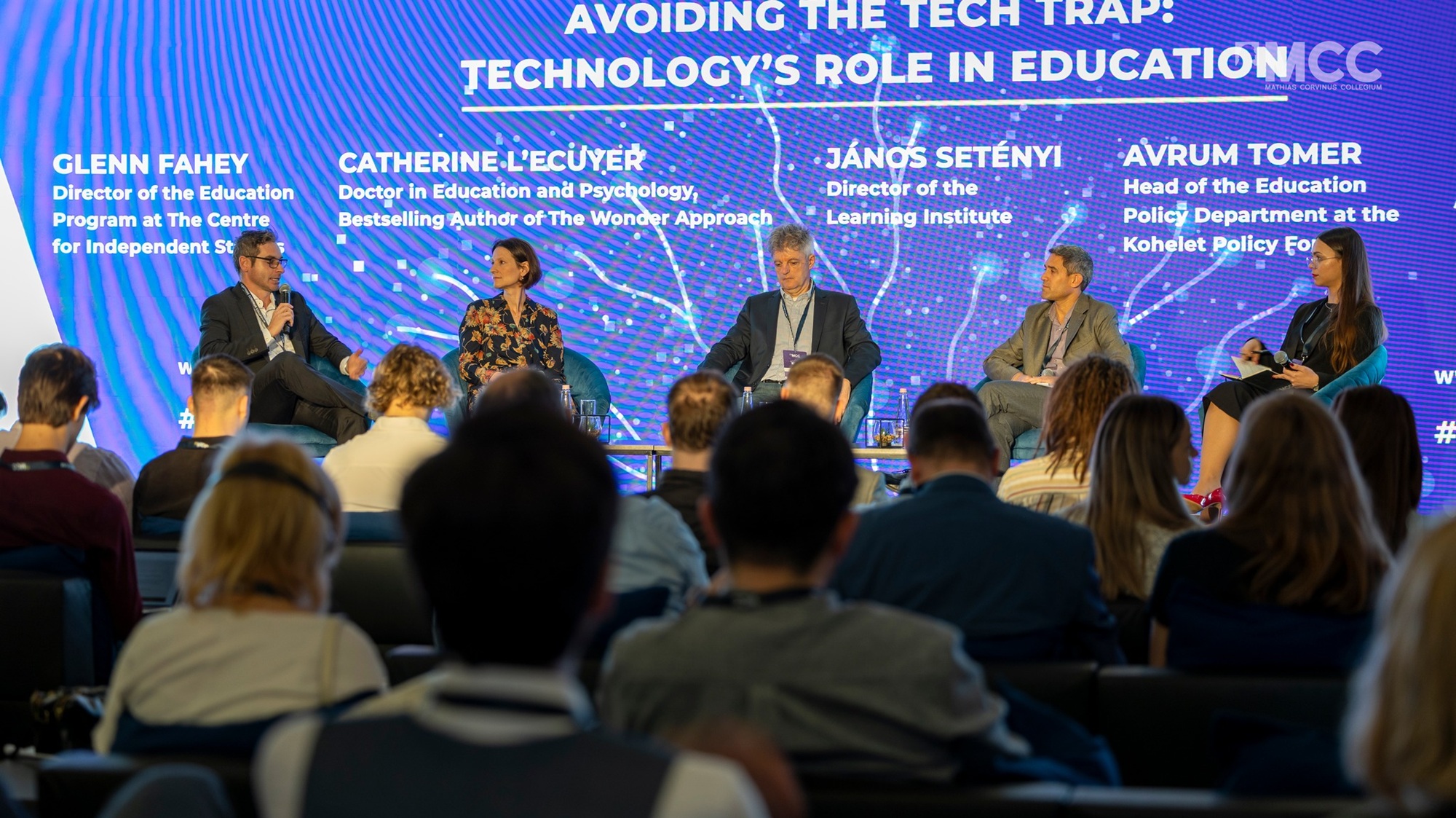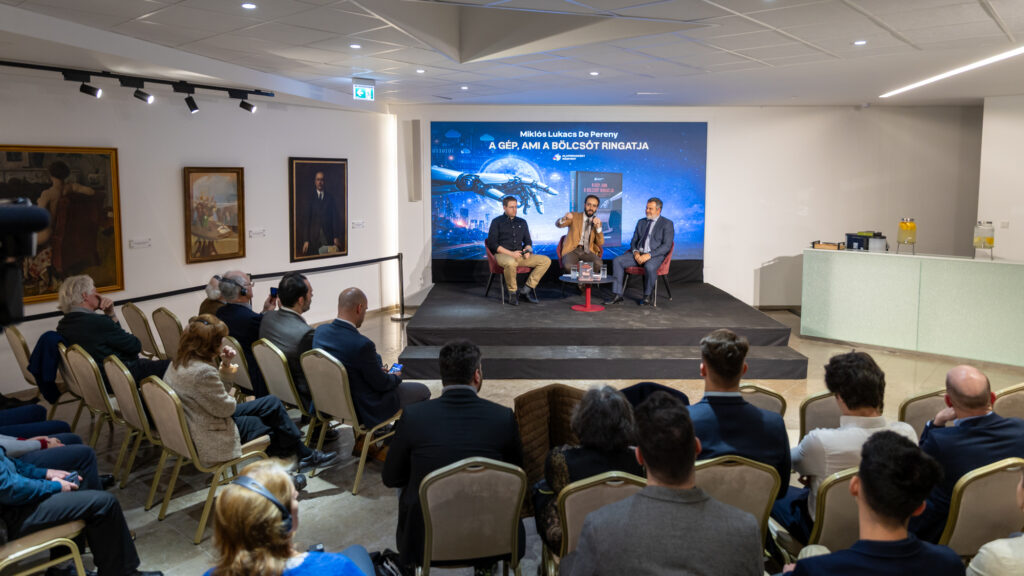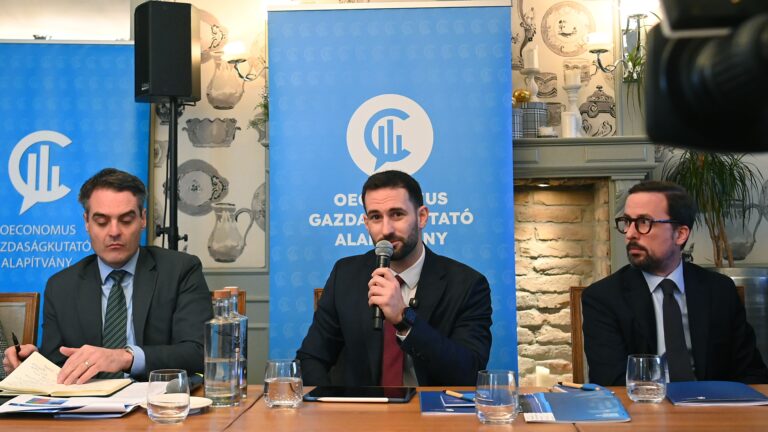Mathias Corvinus Collegium’s Budapest Summit on Technology and Society continued with its Day 2 on Wednesday, 4 June at the MCC Campus in Budapest, Hungary. The day’s schedule started with an insightful discussion about the use of tech tools inside the classroom.
Glenn Fahey, Director of the Education programme at the Centre for Independent Studies in Australia; Catherine L’Ecuyer, a Canadian psychology researcher and the author of the bestselling book The Wonder Approach; Director for the MCC Learning Institute in Hungary János Setényi; and Avrum Tomer, Head of the Education Policy Department at the Kohelet Policy Forum in Israel participated in the panel. Enikő Szakos served in the role of moderator.
Ms L’Ecuyer kicked off the discussion, lamenting the fact that ‘an industry that knows nothing about education’, namely the tech industry, has made its way into the classrooms around the world. He stated that their end goal of making profits is often at odds with the education system’s end goal of ‘perfecting the nature’ of our children. Mr Fahey chimed in, saying that in the tech sector, ‘promises often eclipse the reality’; and agreed that their ‘search for solutionism’ is not always compatible with education.
However, he also pointed out that there are some benefits in using technology in education, such as better precision in student assessment, geater accessibility of content, and the ability to reach more students further away. On the other hand, among the drawbacks, he listed that the highly gamefied education platforms result in shallow engagement with the content. ‘It is not the hardware that is the problem, it is the habits of learning that we are forgetting,’ Mr Fahey opined.
Mr Setényi told the audience that in East Asia, academia and the general public tend to be 'tenchopitimists', focusing on the benefits of the new technology, while in Europe, they are 'technopessimists', concentrating on its dangers. Israel is in its own category, according to the speaker, as they are 'innovating for survival'.
Mr Tomer is from Israel, and he views AI in education as a great tool to save time, likening it to the washing machine. He also highlighted that access to information is no longer a problem today; rather, the new challenge is a 'deficit in orientation', meaning knowing what information to prioritize.
Ms L'Ecuyer took back the floor next, opining that she does not believe the due diligence of the risk-reward analysis was done before technology was introduced to public schools, and shared that there is research that suggests that it is actually detrimental for a child. She also pointed out that both the Canadian Paediatric Society and the American Academy of Pediatrics agree that they recommend no screen time to children under two, and only one hour of screen time per day for children between two and five, as children at that age learn from interpersonal interactions and sensory experiences.
Mr Fahey agreed with that sentiment, and shared that all public elementary schools have banned cell phones in his home country of Australia, a measure that 80 per cent of principals approve of. Mr Setényi, in response, pointed out that there are restrictions on mobile device use in Hungarian schools as well. However, he sees AI as a useful tool to cut down on the administrative workload of school teachers.
He also added that in the education of our children, 'the quality of parenthood has always been decisive'.
Related articles:







